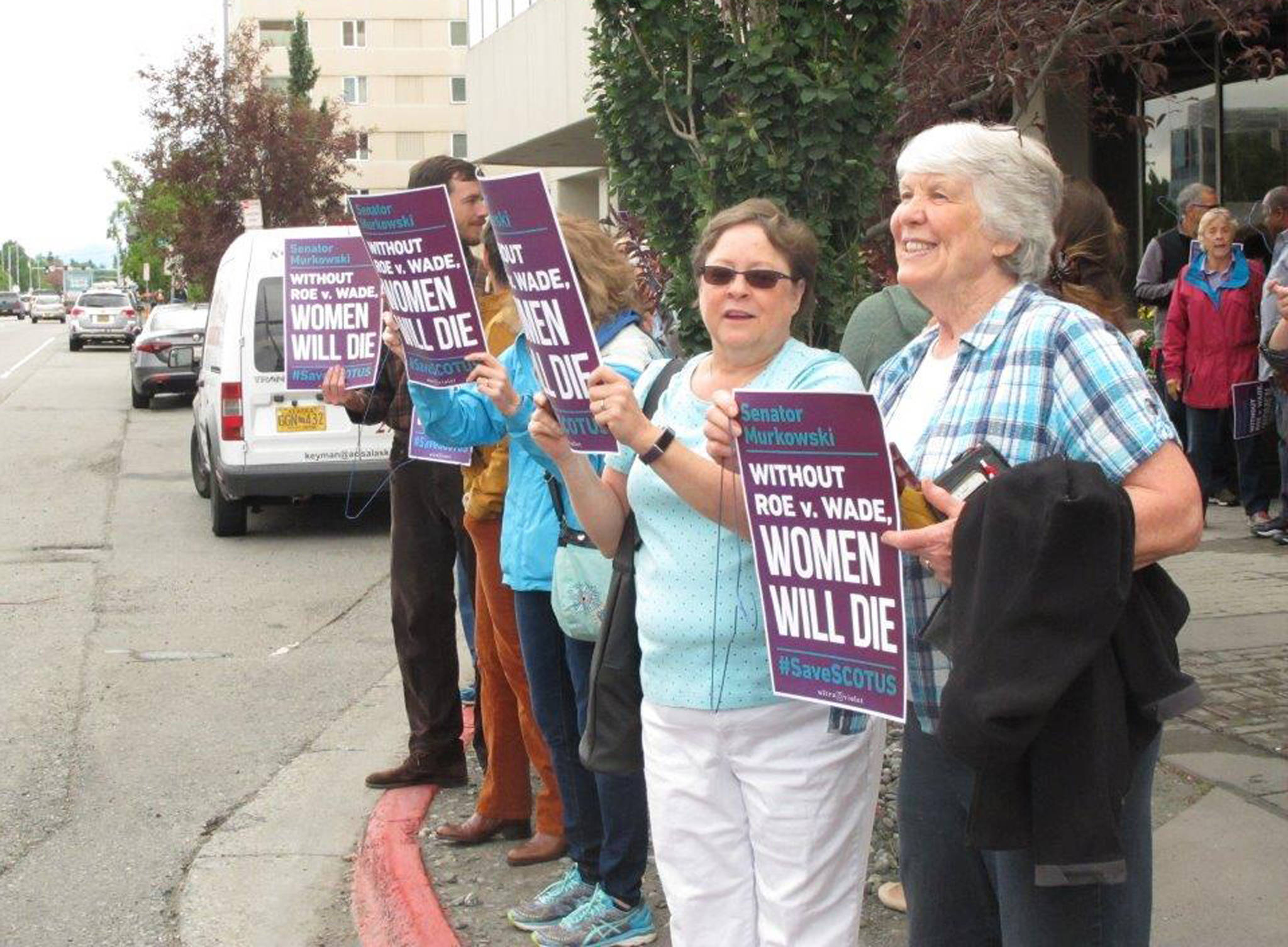Alaska Sen. Lisa Murkowski is in the spotlight in the ongoing national health care debate, and one nationwide organization is putting a concerted effort into motivating Alaskans to share their personal stories with Murkowski about how health care affects their lives.
Protect Our Care, a national campaign that works to preserve and improve the Affordable Care Act, is particularly intent on opposing President Donald Trump’s selection of Judge Brett M. Kavanaugh to the U.S. Supreme Court. Those at the campaign believe Kavanaugh will use his position to repeal ACA and possibly Roe v. Wade.
A date has not yet been set in stone for a vote confirming Kavanaugh’s appointment to the court, but many believe Murkowski, as well as Maine Sen. Susan Collins, could be a vital swing vote. Among those is Andy Slavitt, the former acting administrator of the Centers for Medicare and Medicaid Services (CMS).
Every vote is vital, Slavitt said. Republicans hold a 51-49 majority in the Senate, but Arizona Sen. John McCain is at home fighting cancer.
“You can expect that this is a very, very close vote decided by one vote, potentially, given that there are 50 Republicans if you don’t count John McCain that will vote on this,” Slavitt said in a phone interview. “If one of them chooses not to vote to support Judge Kavanaugh, I think that could be very important.”
Proponents of Kavanaugh have said he’s a highly qualified candidate, having spent 12 years on the U.S. Court of Appeals for the District of Columbia Circuit and spending time as a staff secretary for President George W. Bush. Justin Walker, an assistant professor of law at the University of Louisville’s Brandeis School of Law, clerked for Kavanaugh from 2010-2011 and said Kavanaugh’s previous decisions and writings suggest Kavanaugh will not be a rubber-stamp justice for the president.
“They demonstrate that he faithfully applies the text of the statues and the Constitution and he goes wherever the law leads,” Wilson said in a phone interview.
Wilson was recently in Alaska to speak about Kavanaugh and said he heard a good deal of positive feedback on Kavanaugh from the Alaskans with whom he spoke. Specifically in regard to the ACA, Wilson said Kavanaugh “will go without any passion or prejudice” for either party or either side of the debate.
In a statement immediately after Trump selected Kavanaugh, Murkowski has said she’s looking to sit down with Kavanaugh and give careful consideration to her vote.
Protect Our Care Alaska has mostly focused its efforts in Anchorage thus far, but is expanding its campaign to Southeast. Amber Lee, the state coordinator for the campaign, said it’s important for Murkowski to hear from Southeast residents.
“It’s a very strategic place for us because Murkowski’s originally from Ketchikan,” Lee said, “and there are a lot of strong voices there.”
Murkowski, a republican, has proven to be a key figure in recent health care votes and debates. She’s been a vocal supporter of women’s reproductive rights and case a key “no” vote during a July 2017 vote to repeal and replace the ACA.
Lee is hoping Alaskans reach out to Murkowski with personal stories about how ACA and the Medicaid expansion in Alaska in 2015 have positively affected their lives. The hope is that these personal stories will show Murkowski just how much her constituents will lose if ACA is repealed.
There are numerous ways to get in touch with Murkowski’s office, Lee said. People can write to Murkowski, call her Washington, D.C. office at (202) 224-6665, visit her office in Anchorage or even tweet at @lisamurkowski. Lee encouraged people to use the hashtags #StandUpLisa and #StopKavanaugh.
Protect Our Care is airing television and radio advertisements with a personal twist as well, presenting the image of a woman who is fighting cancer and “shouldn’t have to fight to keep her health care.”
The ACA includes provisions that provide financial security for people with so-called pre-existing conditions such as cancer, diabetes and asthma. According to numbers from the Center for American Progress in 2017, about half of non-elderly Alaskans (upwards of 326,000) have a pre-existing condition.
Gov. Bill Walker accepted federal funds to expand Medicaid in 2015, and Slavitt said that expansion has helped people in rural Alaska get access to medical care. Lee said the issue of health care affects everybody sooner or later, and Slavitt said Kavanaugh’s selection to the Supreme Court could have long-term ramifications for those in need of health care.
“If people do care about these issues,” Slavitt said, “this is a seminal, I think, event in the life of their access to health care.”
• Contact reporter Alex McCarthy at 523-2271 or amccarthy@juneauempire.com. Follow him on Twitter at @akmccarthy.

